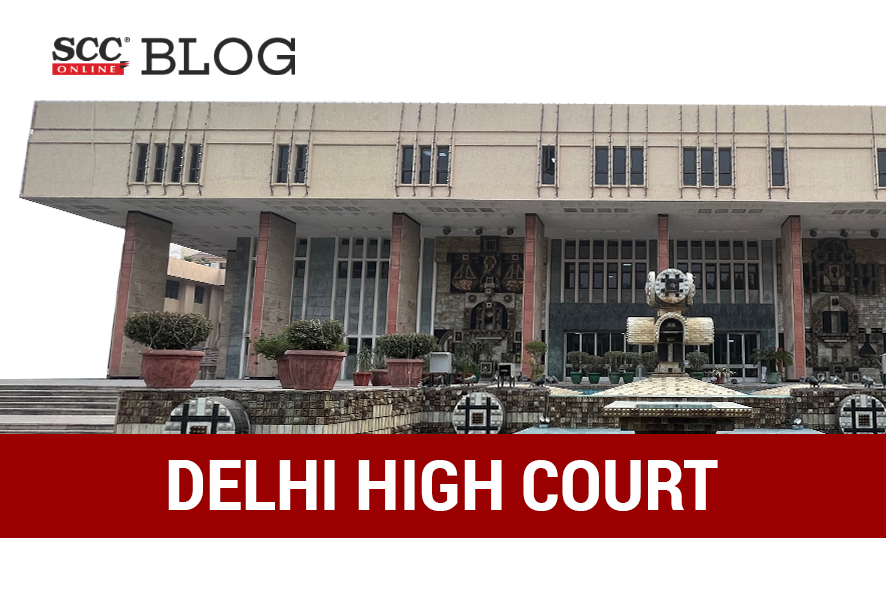Delhi High Court: By way of a writ petition, the petitioner who had come into occupation of a property located next to the Masjid Zabta Ganj in Delhi since his father was an Imam of the mosque, had challenged the order of eviction passed by the Sub Divisional Magistrate, Chanakyapuri. The possession of the said property was handed over to the Delhi Waqf Board. While exercising its writ jurisdiction, the single Judge Bench of Pratibha M. Singh, J., held that the conversion of public places of worship into residences and their occupation by persons who take care of the place becomes contrary to law.
In the matter at hand, the petitioner along with his family were living in the said property since several decades and the property was separated from the mosque by a wall.
The Court noted that the present petition was yet another example of the manner in which public places of worship were converted into private tenements and rights were sought to be claimed by priests, pandits, imams, caretakers and their families, in an illegal and unauthorised manner. “Such public places of worship are converted into residences and are occupied by the persons who take care of the said places including by their extended families, domestic help and other trespassers, which would be contrary to law.”
The Bench further noted that the said places of worship were extended beyond the allotted land and were converted into commercial property, and rents/lease amounts were also sought to be collected in an illegal and unauthorised manner. Even in the present case, it was not clear as to what basis so many persons, who were described as workers, were inducted by the petitioner into the property who continued to occupy the property for several years.
The Bench upon perusing the documents put on record stated that various proceedings would show that in respect of one particular premises, two suits, three writ petitions and various proceedings before the CEO, Waqf Board and the Waqf Tribunal have continued over several years. The petitioner and the three individuals were unauthorised occupants and encroachers, who had no right in the said property.
“The family of an Imam in a mosque cannot claim any rights in the property of the Mosque, as the property vests in the Waqf and the Imam is merely appointed for the purposes of conducting prayers and taking care of the Waqf property.” observed the Court.
The Bench stated that the Imam occupies the property in a capacity which is fiduciary in nature on behalf of the Waqf and any attempt to claim independent rights in the property would be impermissible.
It was further stated that the petitioner who was the son of the Imam, being merely a family member, had himself occupied and had permitted others to occupy this property for several decades without any rights.
The Bench observed that the petitioner “admittedly could not have claimed any rights in the said property and has embroiled the Waqf Board in this long-drawn litigation on a completely false and incorrect premise.”
With the above observation, the petitioner was held to be an unauthorised occupant and an encroacher in the subject property therefore, the petition was sated to be devoid of any merit and was thus, liable to be set aside.
The Court was of the view that the petitioner was unable to show any title to the property in question and due to the nature of the property which was a place of worship allotted to the Waqf, and to uphold public policy and curb illegalities of this nature, this Court held that the petitioner was liable to pay occupation charges to the Waqf Board for unauthorised occupation as also costs of the litigation.
The Court accordingly directed:
-
The Waqf Board shall secure the land allotted to it by way of the Gazette Notification issued in terms of the agreement registered on 03-07-1945.
-
The Waqf Board shall ensure that no land beyond the 0.095 acres was occupied by any person including the current Imam or his family or occupants on his behalf. The allotted land shall be used only for the purposes of the allotment i.e., to run the mosque and no illegal use shall be permitted.
-
Considering the duration of illegal occupation of the premises and the location of the property, the petitioner shall pay a sum of Rs. 15,00,000/- to the Delhi Waqf Board within a period of eight weeks failing which the Waqf Board was permitted to seek enforcement of this order in accordance with law.
-
In addition, a sum of Rs. 2,00,000/- shall be deposited as costs with the Delhi Waqf Board, within 8 weeks.
In the facts and circumstances of this case, it was deemed appropriate to direct the Sub District Magistrate concerned along with the Delhi Waqf Board officials to conduct a proper demarcation and ensure that the land occupied by the mosque was as per its allotment and no one was able to illegally occupy any portion beyond what was permissible. The demarcation to be carried out within 4 weeks from the date of the order.
[Zahir Ahmed v Government of NCT of Delhi Through District Magistrate, 2023 SCC OnLine Del 1506, decided on 06-03-2023]
Advocates who appeared in this case:
For the petitioner- Advocate Khan Zulfiquar Khan and Advocate Deepak Kumar Mishra;
For the Respondent- Standing Counsel for Delhi Waqf Board Wajeeh Shafiq, Advocate Lubna Naaz, Assistant Standing Counsel Raghuvendra Upadhyay.







